The American Board of Surgery (ABS), the national certifying body for general surgeons and related specialists, is pleased to welcome 10 new directors to its various specialty boards. Each director will serve a six-year term, which began on September 11, 2023. All ABS specialty board directors are currently certified by the ABS and are meeting the requirements of the ABS Continuous Certification Program.
These surgeons join the ABS specialty boards along with councilors Callisia N. Clarke, M.D. of the Complex General Surgical Oncology Board and Scott Coates, M.D., Benjamin Jarman, M.D., and Ricardo D. Martinez, M.D., of the General Surgery Board.
Vascular Surgery Board (VSB)
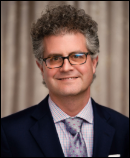

Dr. Abularrage is the Bertram M. Bernheim Professor of Surgery, director of the Diabetic Foot and Wound Clinic, fellowship program director of vascular surgery and endovascular therapy, and associate director of the Limb Preservation and Wound Care Fellowship for Johns Hopkins Medicine in Baltimore, Md. He completed residency training at MedStar Georgetown University Medical Center in Washington, D.C., followed by a vascular surgery fellowship at Massachusetts General Hospital in Boston.
Dr. Abularrage specializes in vascular and endovascular surgery, with a specific interest in minimally invasive techniques for lower extremity peripheral arterial disease and limb preservation.
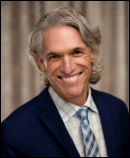

Dr. Rigberg is the program director for the integrated vascular residency and fellowship at UCLA, where he has been faculty since 2003. He completed both his residency training and a fellowship at the David Geffen School of Medicine at UCLA.
In addition to his role with the VSB, Dr. Rigberg serves as co-chair of the APDVS Research Committee where his work has focused on EPAs. His clinical interests include transcarotid artery revascularization, peripheral arterial disease, and aortic aneurysm repair.
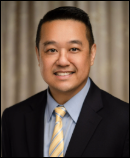

Dr. Jim is the chair of vascular and endovascular surgery at Allina Health Minneapolis Heart Institute and leads the vascular surgery service line at Allina Health, a health system comprised of 12 hospitals and 90 clinics serving Minnesota and western Wisconsin. He completed his general surgery residency training at UCLA Medical Center and then moved to St. Louis to complete a vascular surgery fellowship at Washington University School of Medicine.
His clinical interests include treatment of carotid artery occlusive disease (including transcarotid artery revascularization, endarterectomy and angioplasty/stent placement) and aortic diseases (endovascular treatment of aortic aneurysm and aortic dissections).
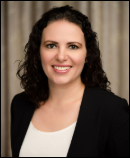

Dr. Etkin is an associate chief of vascular surgery and a program director for the Vascular Surgery Fellowship and Integrated Vascular Surgery Residency at the Zucker School of Medicine at Hofstra/Northwell in Hempstead, N.Y. She completed residency at Montefiore Medical Center in the Bronx followed by a fellowship in vascular surgery at the Hospital of the University of Pennsylvania in Philadelphia.
Dr. Etkin specializes in aortic surgery, carotid surgery, critical limb ischemia, and dialysis access.
Trauma, Burns, and Surgical Critical Care Board (TBSCCB)
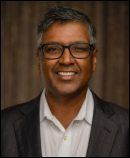

Dr. Agarwal is a professor of surgery and chief of trauma and critical care surgery at Duke University in Durham, N.C. He completed his residency training at the Hospital of Saint Raphael, a major teaching hospital of the Yale University School of Medicine, followed by fellowships in trauma and SCC at Hartford Hospital and the University of Connecticut. He then completed a third fellowship in thoracic surgery at the University of Wisconsin.
Clinically, Dr. Agarwal is interested particularly in chest and chest wall injuries, as well as ventilator management of patients, particularly those with ARDS.
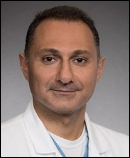

Dr. Arbabi professor of surgery in the Division of Trauma, Burn, and Critical Care and chief of trauma at the University of Washington and Harborview Medical Center in Seattle. After receiving his medical degree from the University of California at Davis, he completed his residency training and a two-year fellowship in trauma and surgical critical care from the University of Washington, also in Seattle. Dr. Arbabi was a faculty member at the University of Michigan Department of Surgery from 2001-2006, before returning to Seattle.
Dr. Arbabi served as the NIH research fellow from 1997-1999, investigating inflammatory cell response, and later he continued his formal education in the field of epidemiology in which he obtained his Master of Public Health. He has had government funding as the PI from the NIH and DoD and is the acute care section head at the Harborview Injury Prevention and Research Center. His research interests include inflammatory cell signaling, thermal injury, wound healing, long-term trauma outcomes, geriatric trauma, and post-discharge care of the injured and surgical patients.
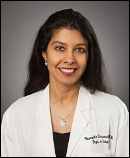

Dr. Dissanaike is the Peter C. Canizaro Chair and University Distinguished Professor at Texas Tech University Health Sciences Center in Lubbock, Texas. She completed residency training at Texas Tech University Health Sciences Center followed by a fellowship in SCC and trauma at the University of Washington.
Dr. Dissanaike brings to the TBSCCB expertise in the management of burns, necrotizing infections, and skin and soft tissue operations in addition to trauma and surgical critical care. She is passionate about surgical education, and serves on the ACGME-RRC for general surgery.
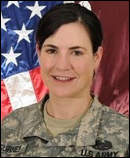

COL Gurney is chief of the Joint Trauma System for the Department of Defense Center of Excellence for Trauma. She completed her surgical training at Walter Reed Army Medical Center and an SCC fellowship at Stanford Hospital.
Since joining the U.S. Army, COL Gurney has served at William Beaumont Army Medical Center, as the chief of general surgery at Landstuhl Regional Medical Center, and has deployed seven times, serving as the theater trauma director in her most recent deployment to Iraq.
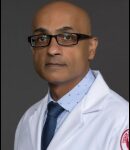

Dr. Pathak is a professor of surgery at the Lewis Katz School of Medicine at Temple University in Philadelphia. He completed residency training at Temple University, followed by a fellowship in SCC at the University of Maryland in College Park, Md.
In addition to teaching and practicing general surgery, Dr. Pathak is the director of Temple University Hospital’s surgical intensive care unit, program director for the school’s SCC fellowship program, chair of the hospital’s Critical Care Committee and the Organ Donation Council, and director of the school’s Advanced Trauma Life Support Course.
Complex General Surgical Oncology Board (CGSOB)
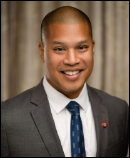

Dr. Eng is an associate professor in the Division of Surgical Oncology at the University of California, Irvine, where he is also associate director of the Peritoneal Surface Malignancy and CGSO fellowship programs and serves as co-director for student education. He completed his residency training at Rutgers Robert Wood Johnson Medical School in New Brunswick, NJ, followed by a CGSO fellowship at City of Hope in Duarte, California.
Dr. Eng brings to the CGSOB expertise in the treatment of advanced abdominal cancers and specializes in complex cytoreductive surgery with heated intraperitoneal chemotherapy (HIPEC). His research is focused on better understanding the molecular characteristics of abdominal tumors, as well as developing innovative therapies for metastatic disease and optimizing outcomes and care in cancer patients.
In Thanks
The ABS gratefully acknowledges the dedication and commitment of the following outgoing specialty board directors, whose terms ended in September:
General Surgery Board
- M. Timothy Nelson, M.D.
Vascular Surgery Board
- Thomas S. Huber, M.D.
- Marc E. Mitchell, M.D.
- C. Keith Ozaki, M.D.
- Vincent L. Rowe, M.D.
Trauma, Burns, and Surgical Critical Care Board
- Kenji Inaba, M.D.
- Krista L. Kaups, M.D.
- Tina L. Palmieri, M.D.
- David A. Spain, M.D.
Complex General Surgical Oncology Board
- Nancy D. Perrier, M.D.
About the ABS
The American Board of Surgery is an independent, nonprofit organization founded in 1937 for the purpose of certifying individuals who have met a defined standard of education, training and knowledge in the field of surgery. Surgeons certified by the ABS have completed at least five years of surgical training following medical school and successfully completed a written and oral examination process administered by the ABS. They must then maintain their board certification through ongoing learning and practice improvement activities.
The ABS offers board certification in general surgery, vascular surgery, pediatric surgery, surgical critical care, complex general surgical oncology, and surgery of the hand. It is one of the 24 member boards of the American Board of Medical Specialties.
SEPTEMBER 11, 2023 | Media Contact: Alyson Maloney
